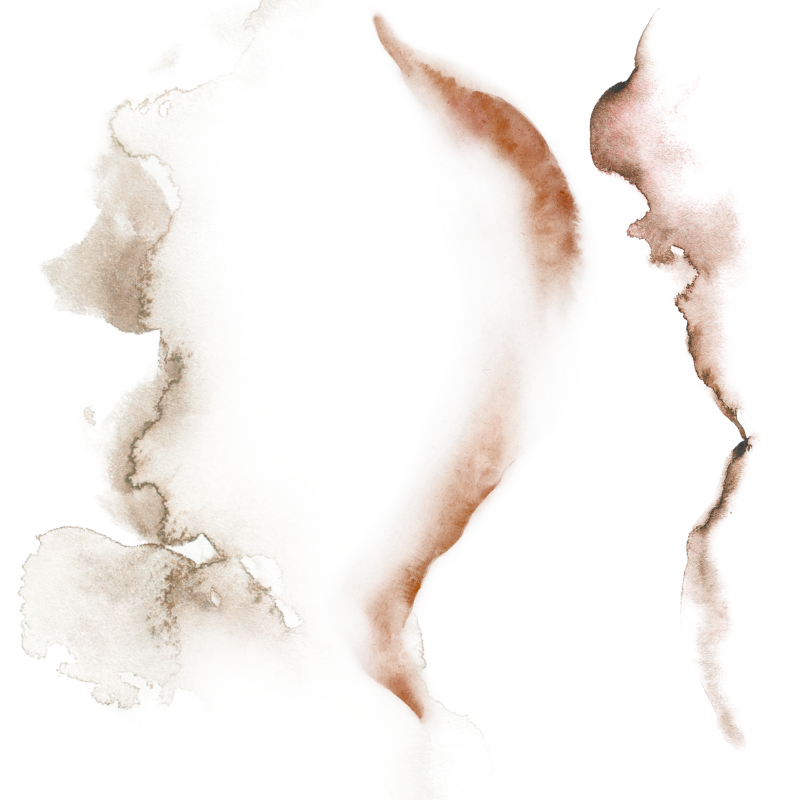
Founder of the Sensory Intelligence Framework™, Scarlet Jaxen is guiding a movement to return power to the people by reclaiming the wisdom of the senses as a crucial and legitimate system of knowledge. In a world shaped by domination, where authority is restricted and maintained through tactics of control, coercion, exclusion, and force, Scarlet teaches people how to plug into their instincts, interpret their intuition, and root into their internal wisdom.
Scarlet Jaxen is a social work expert whose research into domination, trauma, instinct, intuition, power, and leadership led to the emergence of an embodied practice framework for Sensory Intelligence.
Scarlet’s work positions the body as a site of knowledge— where sensation, instinct, and intuition function as strategic intelligence for navigating risk, identifying opportunity, and asserting personal authority.
Through teaching and facilitation, Scarlet guides individuals and groups into a radical reclamation of internal governance— returning people to their power within, so they can lead their own lives with clarity and discernment.
The Sensory Intelligence Framework™ is a practice-based method of interpreting sensory data, decoding instinctive signals, and developing intuitive insight which disrupts the notion of intellect as simply cognitive and reinforces a more holistic understanding of intelligence.
Where cultures based on domination have prioritized cognitive intellect, promoted external authority, and encouraged dissociation from the body, Sensory Intelligence re-centers sensation, instinct, and intuition as strategic capacities necessary for safety, wellbeing, and sovereignty.
The Sensory Intelligence Framework™
The body is not just a vessel— it’s a system of knowledge.
Phases of the Framework
-

Instinct Mapping
Identify instinctive responses (flee, freeze, adapt, fight) and clarify their protective purposes.
-

Disruption Inquiry
Identify instinctive responses that have become locked, restricted, or forbidden. Examine how systemic oppression and personal traumas have impaired instinctual functioning.
-

Visceral Cues
Develop nuanced awareness of internal signals, mapping visceral and sensory cues to interpret their meanings.
-

Sensory Channels
Determine which senses communicate most dominantly and then work to develop the full spectrum of senses.
-

Embodied Research
Engage in research-based sensory practices, using arts-based inquiry and guided experimentation to expand sensory range and intelligence.
-

Creative Integration
Use creativity as a bridge for healing, future-casting, and integration; redefine imagination as a site for analysis, knowledge construction, and transformation.
-

Reconstruct Pleasure
Separate sexuality from sensuality; redefine pleasure as personal, contextual, relational, and embodied.
-

Emotional Collaboration
Investigate the relationship between sensory intelligence and emotional intelligence; explore how sensations interact with emotions to create perception.
-

Expand Self Trust
Establish consistent internal attention, responsive care, and protective boundaries as a foundation for embodied self-trust.
-

Internal Leadership
Develop discernment for when to trust others, when to step into leadership, and how to navigate relational power responsibly.
This framework unfolds as an ongoing, relational, and spiral process— where growth occurs through continuous dialogue between body, environment, community, and evolving self-knowledge.
Professional Background
-
Scarlet Jaxen holds a Master of Social Work, a Bachelor of Social Work, and has spent over 15 years providing support as a counsellor and facilitator. Her areas of focus include healing from violence, recovering from trauma, navigating mental illness and substance misuse, facilitating change, responding to domination, and pleasure as a sacred act of resistance.
-
Rooted in a social constructivist lens, Scarlet’s work understands reality as something that is shaped through relationships, systems, and the intelligence of the body itself. Healing, growth, and personal development, while deeply intimate processes— are often co-opted into trends of self-optimization. Her work redirects these processes back to a personal journey rooted within inquiry, experimentation, reflection, and relational integration.
Scarlet’s expertise emerged directly from her therapeutic practice, where her research into instinct, intuition, and insight revealed how the senses function as legitimate systems of knowledge. What began as a way of listening to her clients through her own body became the genesis of the Sensory Intelligence Framework™ — a practice-based model which assigns authority internally, returning power to individuals and inviting a form of leadership grounded in personal sovereignty. -
As a researcher, Scarlet studied under Canada Research Chair Dr. Kathleen Sitter through the University of Calgary, where she conducted multisensory arts-based research. Scarlet contributed to the creation of soundscapes and digital stories to explore the lived experiences of adults with disabilities.
-
Scarlet’s work is also deeply shaped by mentors whose teachings bridge pleasure, ritual, and earth-based healing traditions. Under the guidance of Regena Thomashauer, founder of The School of Womanly Arts, Scarlet explored the role of desire and pleasure as gateways to purpose and power. With Seraphina Capranos, Willow Kelly, Joni Tabbiner, and Ivry Holmes, she studied ancient healing, ritual, and ceremony, weaving earth-based wisdom into both personal practice and professional facilitation.
-
Scarlet’s therapeutic framework reflects an interdisciplinary integration of clinical scholarship, participatory arts-based research, and embodied healing. Scarlet has studied response-based practice with Catherine Richardson and Allan Wade, whose work examines the linguistic construction of violence, the culturally implicit bias that assigns blame to casualties of domination, the story of resistance that runs parallel to every story of powerlessness, and the vital role of social responses to trauma. She has further integrated Ross Laird’s work on trauma, mental illness, and substance use; Bessel van der Kolk’s research on trauma and the body; Richard Schwartz’s internal family systems model of "parts" work; Gabor Matés' understanding of attachment; and Lana Wells’ scholarship on domestic violence. Scarlet is especially grateful to the influence of Les Jerome, whose teachings introduced her to Indigenous worldviews that continue to shape her understanding of relational reality, and Jenny Mathews-Thusoo, who introduced futures thinking as a creative and responsive method for social transformation.
-
Beyond her academic and therapeutic practice, Scarlet’s work is informed by her lived experience within systems of violence, including domestic and sexualized violence throughout her early life. This personal history informs both her lifelong inquiry into how domination operates — and disrupting dominant cultural norms, personal inquiry, healing, and pleasure research serve as sacred acts of resistance. For Scarlet, developing sensory intelligence is not simply personal; it is relational, political, and plays an imperative role as a method of social justice.
Today, Scarlet works at every level — individually, relationally, culturally, and systematically— teaching, writing, and facilitating programs to develop sensory intelligence and internal leadership.
Author | Intuition is a Bitch
Scarlet is the author of Intuition is a Bitch — a multisensory story about power, pleasure, and the wisdom of the senses.
Intuition is a Bitch challenges cultural narratives through the retelling of humanity's origin stories, tracing Indigenous ways of being, knowing, and doing to reveal the sensory intelligence inherent to every species. Drawing on the research of Riane Eisler, Bessel van der Kolk, and the work of Catherine Richardson and Allan Wade on stories of resistance, Scarlet maps the emergence of domination as a cultural norm and shares a compassionate perspective that maintains disruption as the only just possibility.
Blending personal narrative, evidence-based research, cultural analysis, and folklore, Scarlet invites readers into a fully immersive experience that unfolds across multiple senses— including words, sound, scent, and visual storytelling. This is not a book to skim; it is a book that invites readers to experience knowledge through their bodies to understand it.
Rooted in both scholarship and lived experience, Intuition is a Bitch offers a pathway for readers to reconnect to their instincts, develop their sensory intelligence, and cultivate the internal authority required to lead their lives with clarity, discernment, and personal power.
Pre-Order Now
Facilitator | Programs
Scarlet guides participants through carefully constructed sensory experiences designed for discovery, reflection, and immersive learning. Rather than discussing ideas abstractly, participants engage with their senses to access instinctive knowledge and intuitive insight. This method of embodied story weaving allows participants to explore complex ideas like power, pleasure, authority, and discernment more holistically through a somatic and emotional lens.
By creating sensory-rich, interactive environments, participants can explore aspects of themselves and their experiences in a way that may otherwise be inaccessible under ordinary states of being. This approach supports both individual and collective transformation. Participants experience inquiry that extends beyond thought and into embodied ways of being. The stories that unfold are not performed or acted, but directly encountered and experienced by participants through structured and interactive facilitation.



